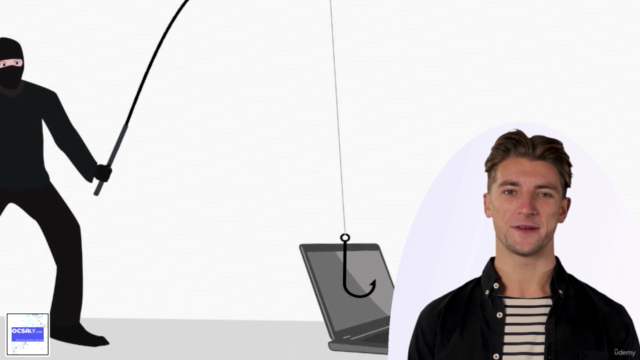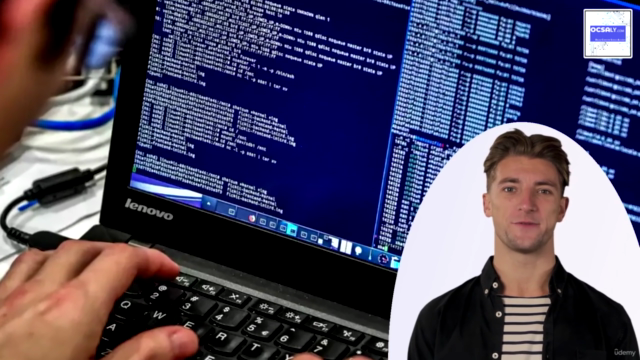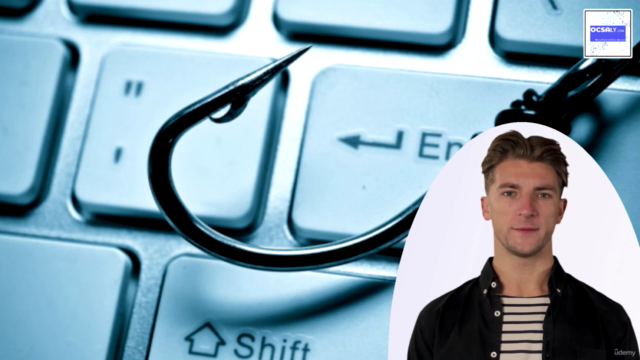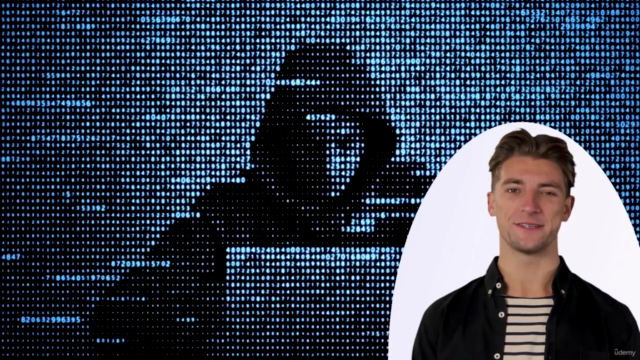Digital Forensics Masterclass :Computer Forensics DFMC+ DFIR

Why take this course?
🚀 Welcome to the Digital Forensics Masterclass! 🔍
Why Join Our Digital Forensics Course?
- Most Comprehensive & Straightforward: Dive into the world of digital forensics with a course that covers everything from A to Z in a clear, concise manner.
- Official Certificate Upon Completion: Showcase your expertise with an Official Certificate that you can add to your resume or LinkedIn profile.
- No Prior Knowledge Required: Whether you're an IT pro, law enforcement officer, or cybersecurity enthusiast, this course is tailored for all levels. A basic understanding of computer systems and networks is helpful but not required.
- Real-World Applications: Learn how digital forensics supports criminal and civil court cases, aids in intelligence gathering, and impacts the legal system.
Course Highlights 🌟
- Legal & Ethical Considerations: Understand the importance of adhering to legal frameworks and ethical guidelines in digital forensics investigations.
- Comprehensive Forensic Process: From identifying and extracting data to analyzing it with forensic tools, our course guides you through every step of a digital forensic investigation.
- Advanced Techniques & Tools: Learn the latest techniques for data recovery, network forensics, mobile device analysis, and more.
- Broad Range of Topics: Explore subjects such as cybercrimes, social media evidence, legal system implications, and cyberbullying.
What You Will Learn 📚✨
- Basic to Advanced Topics: Cover the fundamentals of computer systems and networks before moving on to advanced digital forensic techniques.
- Forensic Data Acquisition & Analysis: Master the art of acquiring data from digital devices and analyzing it effectively.
- Network Forensics: Understand how to investigate network security breaches and trace cyber threats.
- Mobile Device Forensics: Learn specialized methods for extracting and interpreting data from smartphones and other mobile devices.
- Legal Implications of Digital Evidence: Gain insights into the legal landscape of digital forensics and how evidence is handled in court.
Enroll Today 🎓🎉
Don't miss out on this opportunity to become a certified digital forensic investigator with the Digital Forensics Masterclass | Forensic Science 2023 DFMC+. By enrolling, you'll embark on a journey that will equip you with the knowledge and skills to:
- Conduct thorough digital forensic investigations from start to finish.
- Analyze and present digital evidence in a clear and professional manner.
- Stay ahead of the curve by understanding the latest trends and technologies in cybersecurity.
Whether you're looking to expand your skillset, transition into a new career, or enhance your current role with specialized knowledge, our Digital Forensics Masterclass is the perfect choice for you.
Take the next step in your digital forensics journey—enroll now! 🛠️🔑
Ready to unlock the secrets of digital forensics? Click that "Enroll" button and join a community of learners who are passionate about uncovering the truth in the digital age. With OLX's Digital Forensics Masterclass, your adventure into this fascinating field is just a click away! 🚀🕵️♂️
Course Gallery




Loading charts...
Comidoc Review
Our Verdict
The Digital Forensics Masterclass: Computer Forensics DFMC+ DFIR offers a robust exploration of diverse storage media and digital forensic branches. Despite inconsistencies in presentation, the course excels in contextualizing cyber threats, delivering practical mobile device and database forensics techniques. However, substantial improvements in lecture cohesion, visual aids, pronunciation, and overall quality assurance are necessary to provide learners an engaging, distraction-free educational experience.
What We Liked
- In-depth coverage of various storage media, their roles, and historical development, facilitating a comprehensive understanding of data storage evolution.
- The course explores diverse branches of digital forensics including computer, mobile, network, and database forensics, offering learners a well-rounded curriculum.
- Detailed instruction on cybercrime threats provides crucial context to the threat landscape, enhancing learners' ability to recognize potential vulnerabilities in their own environments.
- The course offers practical techniques for conducting mobile device forensics, utilizing mobile forensics tools, and performing database forensics, ensuring hands-on experience with real-world applications.
Potential Drawbacks
- Inconsistent presentation quality with some lecturers' AI-generated voices being difficult to understand due to pronunciation issues.
- Lack of visual aids that correspond directly to the lecturers' dialogue and content, causing confusion for learners at times.
- Course objectives suggest comprehensive coverage of digital forensics but actual course material varies greatly with limited focus on some areas.
- Occasional mispronunciation of common terms and poor quality assurance in text-to-speech lectures.